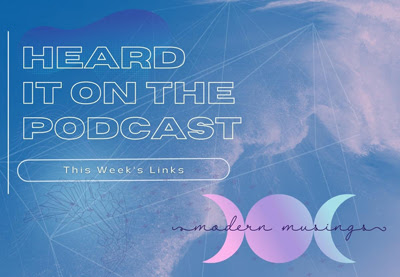“My grandmother made me a scrapbook because I was once too young to remember; I am making scrapbooks for my family because one day I may be too old to remember.” – Unknown.
It’s no secret that I love to scrapbook – Christen and I have been touting the virtues of documenting and memory-keeping since our very first episode in November 2021, when we told you about December Daily. Since then, we have specifically addressed the topic of memory keeping six more times (including yesterday), and have broached the subject in various other episodes as well.
So why all the fuss about sticking photos on paper and writing down a few notes about it? As I mentioned in the podcast, the photos and stories that we preserve for future generations are clues to who we are and where we come from. Yes, we scrapbook to help us remember our lives (and believe me, we do forget), but also so that future generations can learn about our lives, too.
My scrapbooks are particularly precious to me these days because I have preserved photos and stories of so many people I have lost, including my father, my sister, an aunt, several friends, and, of course, my husband, Mark, who passed a little over a year ago. I love that I can flip through these books and relive the stories that made me laugh and cry. Even more importantly, many of those stories were told by Mark, and I listen for his voice whenever I read them.
I know that many people mistakenly believe that no one is interested in their stories, but I am here to tell you that it’s just not true. Every story matters. Even some of the most mundane daily routines become fascinating when they are recounted through the lens of time. Learning about how my great-grandmother picked cotton and how she and her family survived the Spanish Flu pandemic in 1918 gave me a glimpse into what life must have been like for her – something I would never have known if my grandmother hadn’t asked her to write it all down. Did you ever read the Diary of Anne Frank? Her accounts of the daily lives of herself and her family while they were in hiding during the Nazi occupation of the Netherlands are known around the world.
A few years ago, while talking about all the places I have lived and how many times I have moved, Christen told me I should write them all down – to document them. She was right. Many of the places I have lived don’t even exist today. Some of the homes I have lived in have been bulldozed, one burned to the ground, and who knows what condition some of the others are in. My father and sister are dead, and my mother has dementia, so the only other person who shares my life history is my brother, and he is younger, so he doesn’t have the same memories as me. No one else can tell my story better than I can.
I’ve talked about scrapbooks specifically, but I wanted to share with you a few different ways to document your stories. On the podcast, I mentioned Project Life and My Modern Story, and I’ve documented in every type of way you can imagine, including 12” x 12” traditional scrapbooks, mini albums, traveler’s notebooks, and more. I’ve linked several things I mentioned in the podcast on our Heard it on the Podcast post this week, but here are a few video flip-throughs and photos to give you some ideas for how you can document your life, too.
Here are two Project Life (pocket pages) I snapped for my Instagram account:
Those pocket pages weren’t actually in pockets, of course (easier to photograph outside of the pockets), but you see how they are laid out. It's a fun way to document a whole week at once.
These are a few pages from the COVID journal I kept during the pandemic.
You can see more of my scrapbooking and memory-keeping projects by scrolling through my Instagram account or on my YouTube account here:
Cindy M - Crafty Neighbor
No one else can tell your story better than you. Don’t leave your stories to be forgotten by later generations. Your family may not care much about it now, but later, when they are older, when you are gone, they will appreciate very much whatever you’ve been able to leave for them. It doesn’t matter how you preserve the stories…only that you do.
“One day you will tell your story of how you overcame what you went through, and it will be someone else's survival guide” ― Brene Brown.





